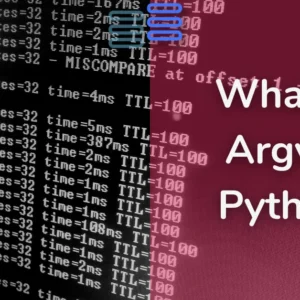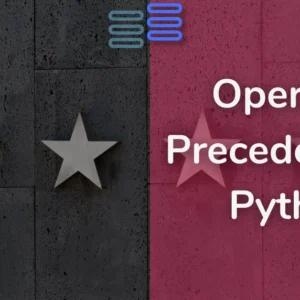Variables are the values that can vary. Let’s see what are variables in Python.
Contents
What is a variable in Python?
Variables in python or in any programming language are containers🥛 that store some value which can be an integer, a floating-point number, a string, or any other data type.
In Python, a variable is a label you can assign a value to. A variable is always associated with a value. For example:
website = "python-hub.com"
print(website)Output:
python-hub.comHere, 'website' is a variable that stores the value 'python-hub.com'.
Anywhere in the program when you write website it would be taken as 'python-hub.com'.
You can use website without quotation marks, if you put a quotation mark, it would be considered a string and not a variable so be careful ❗.
'=' the assignment operator is used to give the value'python-hub.com' to the variable website.
You can assign another value to website:
website = 'python.org'
print(website)Output:
python.orgThe variable website can hold various values at different times. And its value can change throughout the program.
Creating variables
To define a variable, you use the following syntax:
variable_name = valueThe = is the assignment operator. In this syntax, you assign a value to the variable_name.
The value can be anything like a number, a string, etc., that you assign to the variable.
The following defines a variable named rank and assigns the number 1 to it:
rank = 1Variable Naming Rules
Python doesn’t allow you to take any name for your variable.
This is because there are a lot of words and characters reserved in python for specific uses.
For example:-
True and False for boolean.
is, is not, in, and not in as operators. And so on…
Because of these, there are a few options unavailable for you to use.
Let’s see what are the rules📑 you need to follow:-
- You cannot use numbers at the start meaning a variable name cannot be —>
'1python'. - You are free to use all the alphabets from a-z and A-Z.
- Numbers can also be freely used. But, not in the beginning. Like a variable can be —->
'python1'or'p1ython' - Special characters like @#$%^&*()- or any other are also not allowed.
- You can use an underscore
'_'anywhere in the variable. - There must be no use of white spaces.
- You cannot also use any sort of reserved words.
This is it, no more rules to bore you.
Conclusion
- A variable is a label that you can assign a value to it. The value of a variable can change throughout the program. A variable can hold any value.
- Use the
variable_name = valueto create a variable. - The variable names should be concise yet descriptive. Also, they should adhere to Python variable naming rules.


